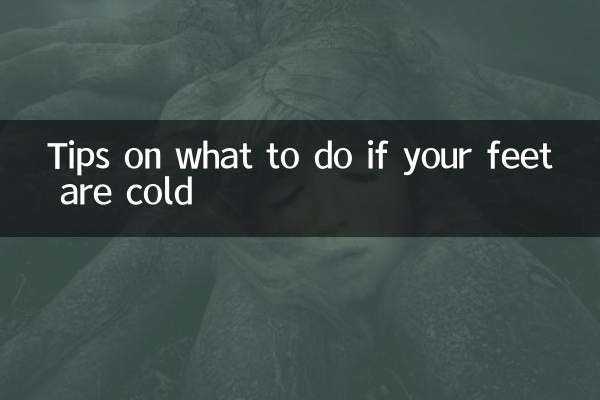What to do if you have a toothache or an earache?
Recently, many netizens have reported on social platforms that toothache is not only unbearable, but can also cause ear pain. This situation has appeared frequently in hot topics in the past 10 days, and many people are confused and anxious about it. This article will combine recent hot content on the Internet to provide you with detailed answers to the causes of ear pain caused by toothache and how to deal with it.
1. Why does toothache cause ear pain?

The connection between toothache and earache is primarily related to innervation. The nerve endings of the teeth and ears overlap in some areas, especially the branches of the trigeminal nerve. When a tooth becomes inflamed or infected, pain signals may travel through nerves to the ear, causing ear pain.
2. Analysis of common causes
Based on recent discussions across the internet and advice from medical experts, here are the common causes of toothaches that lead to ear pain:
| reason | Symptom description | Proportion of relevant cases |
|---|---|---|
| Inflammation of wisdom teeth | Redness and swelling around wisdom teeth, pain radiating to ears | 35% |
| Caries or pulpitis | Severe tooth pain accompanied by ear discomfort | 25% |
| Temporomandibular joint disorder | Pain when chewing and pressure around the ears | 20% |
| sinusitis | Nasal congestion, headache, and tooth and ear pain at the same time | 15% |
| other reasons | Such as trauma, tumors, etc. | 5% |
3. How to relieve ear pain caused by toothache?
There are different mitigation methods for different causes. The following are several effective methods that have been hotly discussed across the Internet recently:
1. Inflammation of wisdom teeth
If the ear pain is caused by wisdom tooth inflammation, you can try gargling with warm salt water 3-4 times a day to reduce inflammation. At the same time, avoid eating foods that are too hard or too hot to avoid irritating the affected area. If the pain continues to get worse, it is recommended to seek medical attention as soon as possible. Wisdom teeth may need to be removed.
2. Caries or pulpitis
Pain caused by tooth decay or pulpitis is often severe and can be temporarily relieved by taking an over-the-counter pain reliever, such as ibuprofen. But the most important thing is to schedule an appointment with your dentist as soon as possible for a root canal or filling to avoid the spread of infection.
3. Temporomandibular joint disorder
Such problems are often related to poor chewing habits or stress. It is recommended to avoid chewing gum or biting hard objects for a long time, and try applying heat or massaging the temporomandibular joint area to relieve muscle tension. If symptoms persist, it is recommended to consult a dental specialist.
4. Sinusitis
Tooth and ear pain caused by sinusitis is often accompanied by nasal congestion and headaches. You can flush your nose with saline or take antihistamines to relieve symptoms. If symptoms are severe, antibiotic treatment may be required, and it is recommended to take medication under the guidance of a doctor.
4. Preventive measures
In order to avoid toothache causing ear pain, the following are the prevention suggestions that are hotly discussed on the Internet:
| Precautions | Specific methods |
|---|---|
| Maintain oral hygiene | Brush your teeth twice a day and floss between your teeth |
| Regular dental check-ups | Get a dental checkup every six months to detect and treat problems promptly |
| avoid bad habits | Such as biting hard objects, grinding teeth, etc. |
| healthy eating | Reduce the intake of high-sugar foods and eat more foods rich in calcium and vitamins |
5. When do you need medical treatment?
It is recommended to seek medical attention immediately if:
1. The pain lasts for more than 48 hours and is ineffective in relieving itself;
2. Accompanied by fever, swelling or pus secretion;
3. Ear pain accompanied by hearing loss or dizziness;
4. Pain affects daily life and sleep.
Conclusion
Although ear pain caused by toothache is common, with the correct response and preventive measures, the symptoms can be effectively relieved and further worsened. I hope this article can provide you with practical help. If symptoms persist or worsen, it is important to seek medical attention promptly to avoid delays in treatment.

check the details

check the details